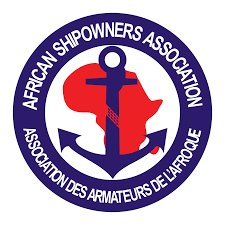Paragraph 1: The Cabotage Vessels Finance Fund (CVFF) and its potential for Nigeria’s maritime industry.
The Cabotage Vessels Finance Fund (CVFF) is a fund established by the Nigerian government to promote the development of indigenous shipping capacity in Nigeria’s coastal waters. The African Shipowners Association (ASA) has lauded the government’s recent directive to disburse the CVFF at a single-digit interest rate, emphasizing its potential to stimulate growth within the maritime sector. This move is expected to boost capacity building, enhance local content, and solidify Nigeria’s position as a leading maritime nation in Africa. The involvement of Nigerian banks in the disbursement process is seen as a crucial step towards ensuring transparency and mitigating the risk of fraudulent loan applications.
Paragraph 2: Unlocking opportunities and fostering competition in coastal trade.
The disbursement of the CVFF is poised to create a wealth of opportunities for Nigerian shipowners. With access to affordable financing, Nigerian entities can acquire and operate more vessels, thereby increasing their participation in the coastal trade. Currently, this sector is dominated by foreign-flagged vessels. The infusion of capital through the CVFF will empower Nigerian shipowners to compete more effectively, ultimately boosting the nation’s economic self-reliance in maritime transport. This increased competition is expected to improve service quality and potentially drive down shipping costs, benefitting both businesses and consumers.
Paragraph 3: Alignment with global best practices and the role of banks.
The Nigerian government’s approach to CVFF disbursement aligns with international best practices observed in maritime nations like Japan, China, and Indonesia, where export funds and bank involvement are commonplace in ship financing. The involvement of Nigerian banks in the CVFF process introduces a layer of due diligence and oversight, ensuring that funds are allocated responsibly and transparently. This structured approach is expected to prevent misuse of funds and ensure that beneficiaries meet the necessary criteria for ship ownership and operation. The participation of banks will also encourage the development of specialized maritime desks within these institutions, further strengthening the financial infrastructure supporting the industry.
Paragraph 4: Ensuring effective implementation and comprehensive readiness.
The successful disbursement of the CVFF requires more than just fund allocation. A robust framework for implementation, encompassing thorough readiness, efficient execution, and meticulous monitoring, is essential to maximize the impact of the fund. The African Shipowners Association, representing companies engaged in both domestic and intra-African trade, emphasizes the importance of aligning these aspects seamlessly. This includes ensuring that potential borrowers have the necessary operational capacity and compliance with international maritime regulations before receiving funds. Careful planning will prevent the pitfalls of past experiences and ensure the long-term sustainability of the funded projects.
Paragraph 5: The African Shipowners Association and its commitment to best practices.
The ASA comprises companies operating vessels under Nigerian flags, demonstrating their commitment to the nation’s maritime development. These companies operate within the guidelines set by the Nigerian Maritime Administration and Safety Agency (NIMASA) and adhere to international standards prescribed by the International Maritime Organisation (IMO) and relevant Classification Societies. The association’s comprehensive database of its members, including their trading routes and cargo details, further underscores their commitment to transparency and accountability within the maritime sector. This organized structure positions the association as a valuable partner in the CVFF disbursement process.
Paragraph 6: Synergistic development of the Nigerian maritime and petroleum sectors.
The disbursement of the CVFF is viewed as a complementary initiative to the Nigerian National Petroleum Corporation Limited’s (NNPC) efforts in developing both the upstream and downstream sectors of the country’s petroleum industry. By strengthening the indigenous shipping capacity, the CVFF will facilitate the efficient movement of petroleum products, supporting the growth of this vital sector. This synergy between maritime and petroleum development will contribute to the overall economic growth of Nigeria, creating jobs and enhancing the country’s global competitiveness in both industries. The CVFF is thus a strategic investment in the future of Nigeria’s blue economy, with far-reaching positive implications for the nation’s economic prosperity.














